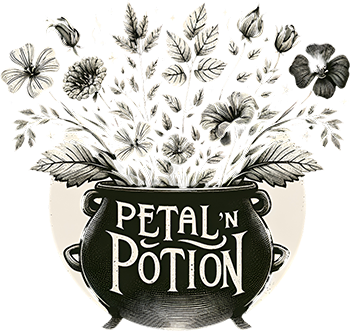S t a r A n i s e
Star anise (Illicium verum) is a spice derived from the fruit of a small evergreen tree native to northeast Vietnam and southern China.
Its star-shaped pods are commonly used for their flavor in cooking and traditional medicine due
to their aromatic properties and potential health benefits.
Benefits
- Antimicrobial Properties: Exhibits antibacterial, antifungal, and antiviral effects.
- Digestive Health: Promotes healthy digestion and alleviates symptoms such as bloating, indigestion, and gas.
- Respiratory Health: Helps relieve symptoms of colds, coughs, and bronchitis.
- Antioxidant Properties: Provides antioxidants that protect cells from oxidative stress and damage.
- Anti-Inflammatory: Reduces inflammation, benefiting conditions like arthritis and other inflammatory diseases.
- Hormonal Balance: May help regulate hormones and improve reproductive health.
- Pain Relief: Alleviates pain associated with issues like menstrual cramps and sore throats.
- Immune Support: Enhances immune function and helps the body fight off infections.
- Improves Sleep Quality: Promotes restful sleep and helps treat insomnia.
- Culinary Uses: Widely used in cooking, especially in Asian cuisines, for its sweet, licorice-like flavor.
Active Compounds
- Anethole: The primary active compound responsible for star anise’s distinct flavor and many of its medicinal properties.
- Shikimic Acid: Used in the production of antiviral medications, including those for influenza.
- Linalool: Contributes to the plant’s antimicrobial and anti-inflammatory effects.
- Quercetin: Offers additional antioxidant and anti-inflammatory benefits.
- Gallic Acid: Provides further antioxidant protection.
- Limonene: Known for its digestive and respiratory benefits.
Who Should Avoid This
- Individuals with Allergies: Those allergic to star anise or related plants should avoid it.
- Pregnant and Nursing Women: Generally considered safe in culinary amounts, but it is advisable to consult a healthcare provider before use in medicinal doses.
- Individuals on Medication: Particularly those taking anticoagulants or hormonal therapies should consult a healthcare provider to avoid interactions.
- Children: Use caution when giving star anise to young children, as high doses may cause adverse effects.
Warnings
While star anise offers numerous health benefits, some precautions and potential side effects should be considered:
- Toxicity: Japanese star anise (Illicium anisatum) is toxic; ensure you are using Chinese star anise (Illicium verum).
- Gastrointestinal Issues: High doses may cause stomach upset, nausea, or vomiting.
- Pregnancy and Breastfeeding: Generally considered safe in culinary amounts, but consult a healthcare provider before use in medicinal doses.
- Allergic Reactions: Can cause allergic reactions in some individuals.
- Interactions with Medications: May interact with certain medications, including anticoagulants and hormonal therapies.
Usage Guidelines
Star anise can be used both short-term and long-term, depending on the condition being treated. For acute issues such as digestive discomfort or respiratory symptoms, it is typically used until symptoms improve. For ongoing benefits such as immune support or general wellness, longer-term use may be appropriate but always under the guidance of a healthcare professional. Always consult with a healthcare provider to determine the correct dosage and duration for your specific needs.
